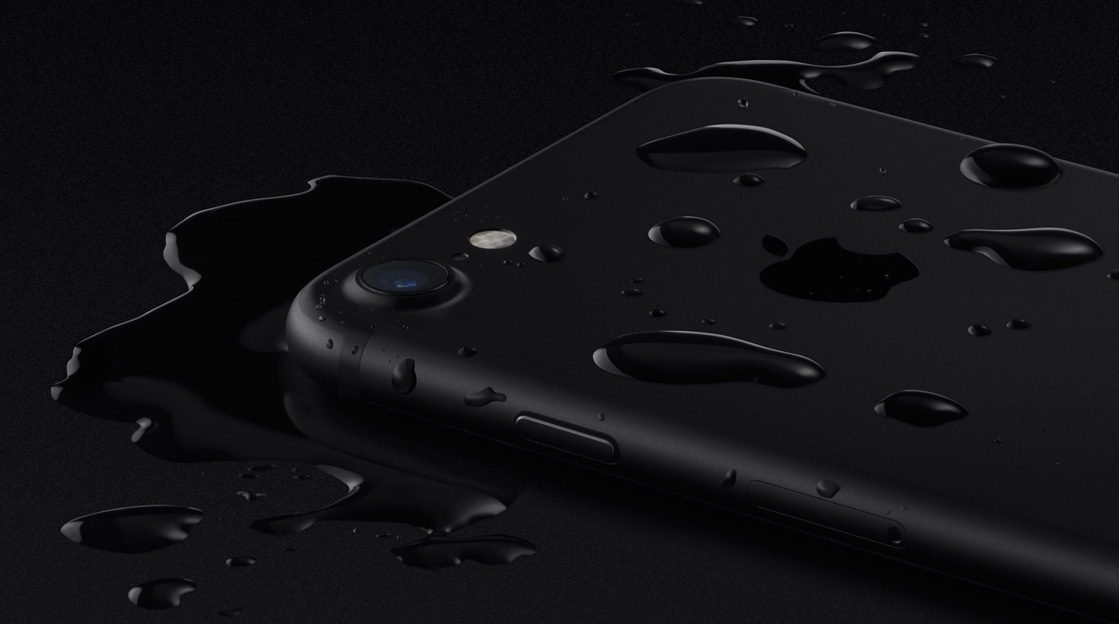
The iPhone 7 and iPhone 7 Plus come with an IP67 rating that makes them “splash, dust and water resistant.” Apple had proudly highlighted the IP certification of the new iPhones at the launch event.
What exactly does the IP67 certification mean, though? Does it mean that you can take your brand new iPhone 7 for swimming without worrying about damaging it? Not really.
The ‘IP67′ certification of the iPhone 7 and iPhone 7 Plus stands for Ingress Protection. The ’67’ denotes that the new iPhones are fully protected against dust ingress and can withstand being submerged in water for up to 30 mins in 1m depth. The highest IP certification for a consumer device stands at IP68, with the ‘8’ denoting that the device can stay underwater for “generally up to 3m” or as specified by the manufacturer for a duration which is again specified by the OEM. The Galaxy S7 and S7 edge feature an IP68 certification, and Samsung states that the handsets are water resistant to a maximum depth of 1.5m for up to 30mins. Technically, this means that the handsets have better water resistance capabilities than the iPhone 7 and iPhone 7 Plus.
The Fine Print
The important thing to note, however, is that the IP rating of your device does not make it resistant to all and any kind of liquid. Pressurised water can easily breach the water resistance seal of the handset and seep inside the device thereby damaging the internals. Similarly, salt/sea water is a strict no-no. Do NOT take your iPhone 7 with you to the beach for swimming thinking nothing will happen. Sea water can cause a lot of damage to water resistant devices. If you do end up dropping your iPhone 7 in salt/sea water, quickly take it out of the water and even if it is working fine, wash it thoroughly with fresh water and then dry it properly. If you spill any other liquid on your iPhone 7, do the same thing.
Wear and Tear
The iPhone 7 and iPhone 7 Plus achieve their IP67 certification by sealing the internals using rubber gaskets. The IP certification of the device will deteriorate over time, though this should not make a huge difference. Most importantly, though, if you drop your iPhone 7 and its frame or the structure of the chassis is affected in any way, its IP rating can be compromised.
No Warranty
Like with previous iPhones, the standard one-year limited warranty from Apple does not cover the iPhone 7 and iPhone 7 Plus against liquid damage. This is despite the phones coming with an IP67 rating. So, if you somehow do end up water damaging your iPhone 7 or iPhone 7 Plus, don’t expect Apple to replace or fix your phone for free. The company has already made this explicitly clear in its warranty guidelines.
iPhone 7 and iPhone 7 Plus are splash, water, and dust resistant and were tested under controlled laboratory conditions with a rating of IP67 under IEC standard 60529. Splash, water, and dust resistance are not permanent conditions and resistance might decrease as a result of normal wear. Do not attempt to charge a wet iPhone; refer to the user guide for cleaning and drying instructions. Liquid damage not covered under warranty.
So, ultimately, the iPhone 7 and iPhone 7 Plus are water resistant but there is a lot more to it than you initially thought.
